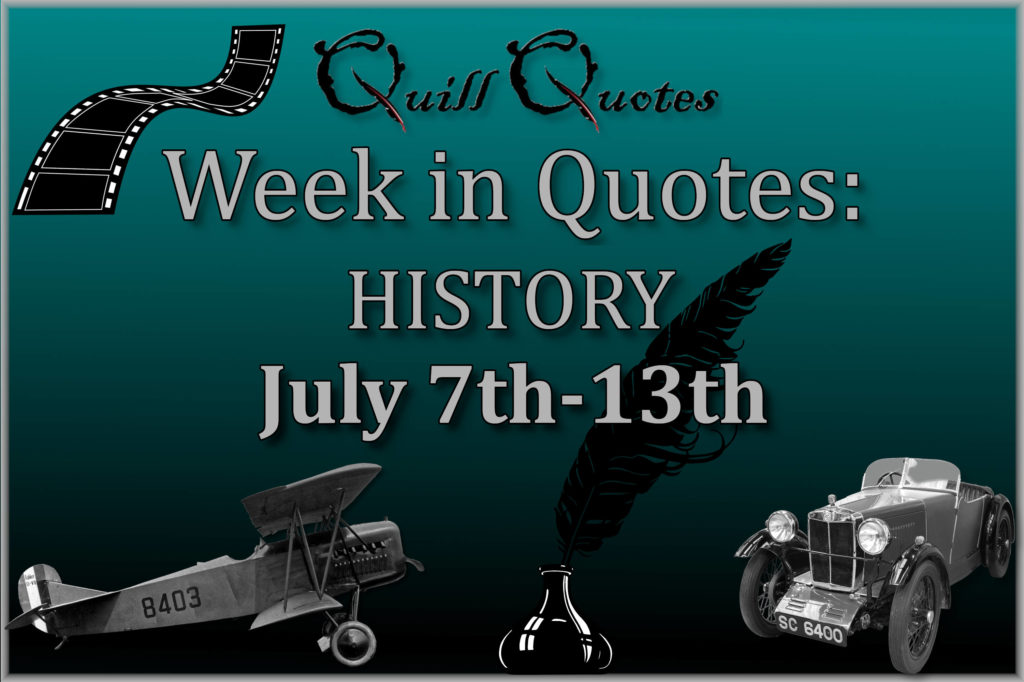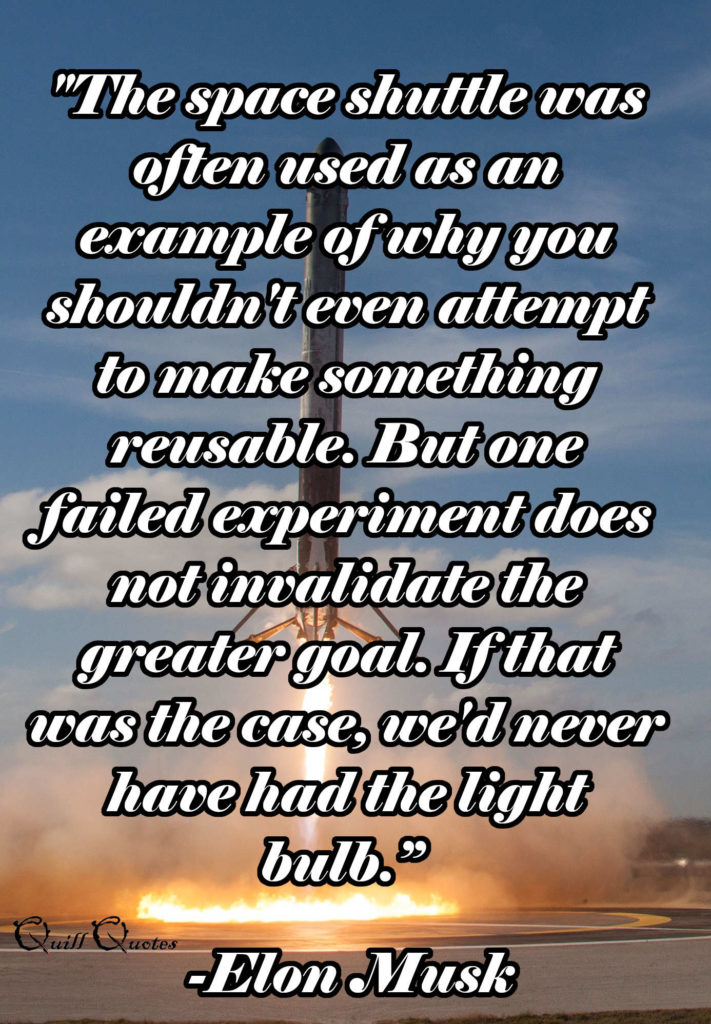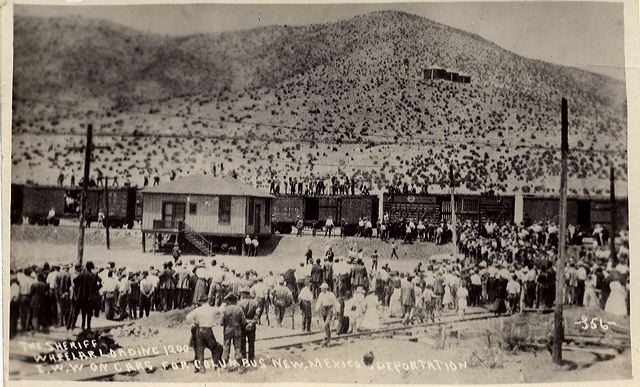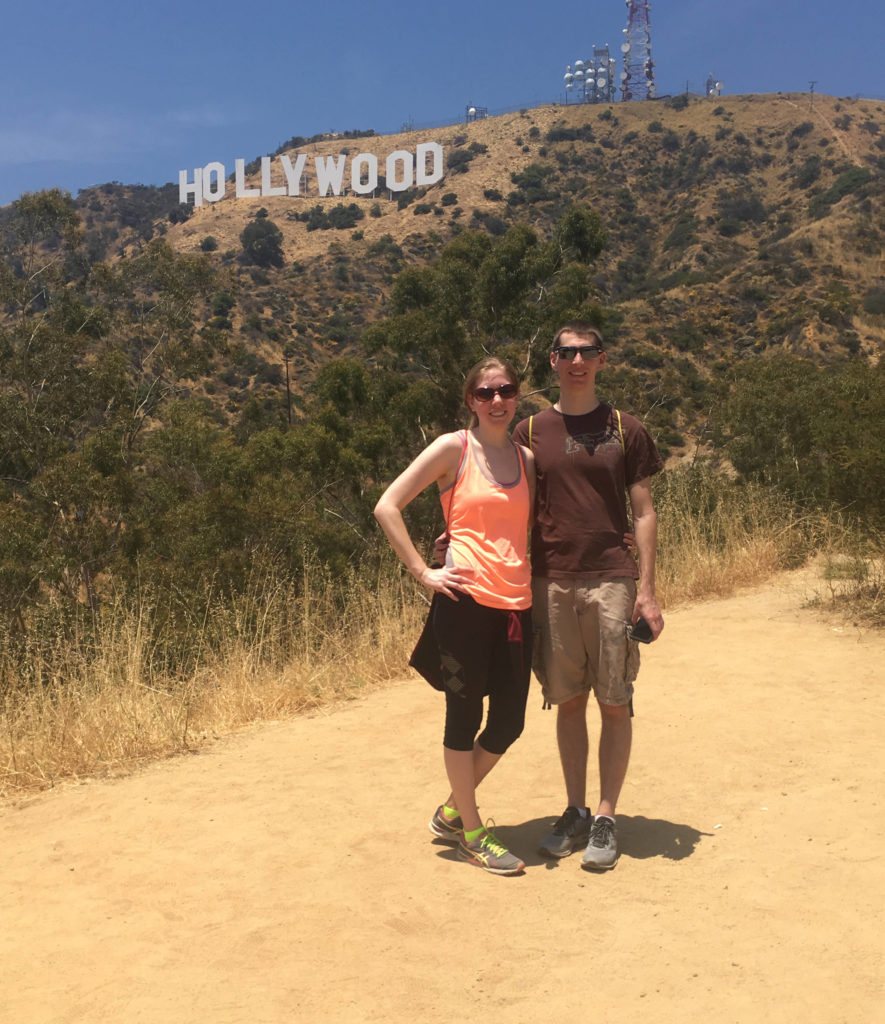There is always much to learn from quotes and their historical significance. Read on for a collection of quotes and general history from July 7th – 13th.

July 7, 1456
“One life is all we have and we live it as we believe in living it. But to sacrifice what you are and to live without belief, that is a fate more terrible than dying.”
– Joan of Arc
The retrial of Joan of Arc, also known as the nullification trial, found her innocent on July 7, 1456, and declared her a martyr. She had been executed in 1431 for heresy after a politically motivated trial that was heavily influenced by the English. Ultimately convicted on cross-dressing charges for wearing male clothing during battle and in prison, an earlier attempt at conviction had asked her if she knew she was in God’s grace. Avoiding the trap, she answered, “If I am not, may God put me there; and if I am, may God so keep me.” If she had answered yes, she would have been guilty of heresy, since church doctrine held that no one could be certain of being in God’s grace, and answering no would have confessed her own guilt. Joan of Arc lives on as a hero for her role leading the French during the Hundred Years’ War and she was canonized a saint in 1920.
July 8, 2011
“Well, with so many space shuttle missions that we’ve done, I think it’s just sort of natural that each one hasn’t necessarily gotten the attention that the early ones did.”
– Ellen Ochoa
On July 8, 2011, Space Shuttle Atlantis launched on the final mission of the U.S. Space Shuttle program, STS-135. This marks the last time humans launched from American soil and the end of an era for NASA spaceflight. NASA has since focused efforts on developing commercial partners to provide new, cheaper access to space. For example, the Commercial Orbital Transportation Services (COTS) program led to the development of the SpaceX Dragon and Orbital Sciences Cygnus spacecraft. And, in the near future, the Commercial Crew Development (CCDev) program should return human spaceflight to American launch pads!


July 9, 1944
“I have lived in the United States and I know the might of their industrial complex. The United States is a sleeping giant and I am afraid that our attack has awakened it.”
– Chuichi Nagumo
The Battle of Saipan ended in an American victory on July 9, 1944. This was a crucial strategic victory in the Pacific Theater of World War II, as it put the Japanese mainland within range of U.S. B-29 bombers. As the American troops advanced north across the island, the Japanese were left with nowhere to retreat and resorted to a suicidal banzai charge. In the end, nearly all the approximately 29,000 Japanese troops stationed on Saipan were killed along with many civilian casualties. With defeat imminent, many Japanese committed suicide to avoid capture, including Vice-Admiral Chuichi Nagumo, who led the Japanese carriers at Pearl Harbor.
July 10, 1973
“The rich are not born skeptical or cynical. They are made that way by events, circumstances.”
– J. Paul Getty
On July 10, 1973, John Paul Getty III was kidnapped in Rome by Italian gangsters. A ransom of $17 million was requested from his grandfather, J. Paul Getty, who was an American oil tycoon and once the richest man in the world. However, J. Paul Getty refused to pay, believing it would only make his other 13 grandchildren targets. Eventually, after the kidnappers cut off his grandson’s ear and mailed it to the press, he negotiated a ransom of about $2.9 million. Of which he paid $2.2M, the maximum tax-deductible amount, and loaned the remainder to his son at a rate of 4% interest. After more than 5 months in captivity, John Paul Getty III was released on December 15, 1973. In addition to his wealth and grandson’s kidnapping, J. Paul Getty is also known as an avid art collector.

July 11, 1656
“The Lord showed me, so that I did see clearly, that He did not dwell in these temples which men had commanded and set up, but in people’s hearts … His people were His temple, and He dwelt in them.”
– George Fox, Founder of the Quakers
On July 11, 1656, Mary Fisher and Ann Austin arrived in America, the first known Quakers to do so. They were imprisoned by the Puritan government of Boston, Massachusetts and their books burned for heretical views. After five weeks’ imprisonment, they were deported back to England and Quakers banished from Massachusetts. While some Quakers still came to Massachusetts, most opted for the more tolerant colonies in Rhode Island, New Jersey, and Pennsylvania.
July 12, 1917
“A Sheriff’s posse of 1,200 men in Bisbee and 1,000 men in Douglas, all loyal Americans, [had formed] for the purpose of arresting on the charges of vagrancy, treason, and of being disturbers of the peace of Cochise County all those strange men who have congregated here from other parts and sections for the purpose of harassing and intimidating all men who desire to pursue their daily toil.”
– Bisbee Daily Review, July 12, 1917
The Bisbee Deportation occurred on July 12, 1917, where nearly 1,300 men were forcibly deported from Bisbee, Arizona. To address a mining strike, the Phelps Dodge Corporation ordered the men deported and Sheriff Wheeler recruited a posse of some 2,200 deputies to carry out the task. They arrested every man on strike, along with any man who refused to work in the mines and assembled them in Warren Ballpark. There, the non-members were given a chance to denounce the union and return to work, while the union members and those who refused were loaded onto railroad cattle cars. The train took them nearly 200 miles to Hermanas, New Mexico where they were unloaded and warned against returning to Bisbee. Despite a presidential commission finding the deportations “wholly illegal and without authority in law, either State or Federal,” no one was ever convicted.

July 13, 1923
“Hollywood is a place where they’ll pay you a thousand dollars for a kiss and fifty cents for your soul. I know, because I turned down the first offer often enough and held out for the fifty cents.”
– Marilyn Monroe
On July 13, 1923, the Hollywood Sign was created as an advertisement for a local real estate development. It originally read “Hollywoodland” and was only intended to last a year and a half. However, with the rise of American cinema in Los Angeles, the sign became too widely recognized to take down. The sign was repaired in 1949 when “land” was removed, and again in 1978. Hollywood continues to be synonymous with American cinema and the sign is often seen in popular culture.

In case you missed last week’s quotes, see History June 30th – July 6th.
To never miss a Quill Quotes post, please subscribe to our free Email Newsletter and follow us on Social Media.
Okay I really enjoyed these quotes and how you took them from all over history….also I somehow never knew that it was originally Hollywoodland, that’s pretty cool to find out! I really enjoyed this post 🙂
Thanks, glad you enjoyed it! I was also surprised to learn it was originally Hollywoodland.